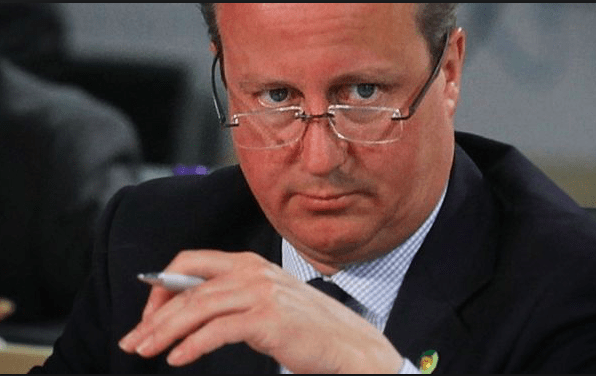It’s just as well that David Cameron abandoned his career in public relations because he seems to be comically (or, if you’re a journalist, deliciously) bad at crisis management. He has done absolutely nothing wrong, but is carrying on as if he’s Ken Dodd in 1989 – except Dodd handled it all more deftly. The Prime Minister has now released six years of his tax returns, which is odd because no one is asking questions about his income over the last six years. But still, he wants to tell us about the £100k annual rent he’s getting form his Notting Hill flat and the £3,052 of bank interest (which suggests a balance of about £150k). And the other tax returns show about £200k of income since becoming PM.
But, of course, we knew all of that. The Prime Minister’s salary is a matter of public record, and are any extras received by MPs. So after his non-denial denial over Panama a few days ago, we get a non-disclosure disclosure. Now that Cameron has opened the conversation, boasting about how transparent he is and is the first party leader to publish those returns, he invites all kind of nosey follow-up questions from the press. Like…
- These tax returns talk about your income. What about your assets? Because that’s the story with you lot, isn’t it? You don’t do anything as déclassé as actually earn your wealth. You either inherit it, or marry into it. Which becomes a political problem: you’re not really into social mobility (or low taxation) because you regard wealth as something passed on, not earned via hard work.
- And your mate Osborne: where’s his tax return? He’s lived on an MP’s salary all his career, but still leads the life of Riley with suspiciously expensive tastes: Swiss ski resorts, a six-bedroom house in West London. How can he afford all that? If he doesn’t publish his tax returns, and refuses to follow you in this same spirit of disclosure, are we to assume that he’s been on the hey-diddle-diddle?
- Why are you only publishing the returns since you knew you’d be PM? What about the years when these Irish and Panamarian financial gymnastics were taking place?
- And your wife’s tax return, please? Because we all know that spouses use each other’s tax allowances. Showing us your tax return, but not hers, tells us only half of the story.
- If you’re so more-transparent-than-thou, why didn’t you disclose the £30k offshore shareholdings in the register of members’ interests?
And on it will go. Cameron hasn’t closed drawn a line under the story today, but opened up a whole new avenue of inquiry. He has laid down a Cameron Doctrine: that the Prime Minister’s personal financial affairs ought to be a matter of intense public interest and media scrutiny. The Sunday Times describes the publication of his tax details as “an historic move that will transform British politics”- maybe it will, but not for the better. All this does is encourage a prurient interest in the financial lives of others, and one that will discourage financially successful people from entering politics.
It can seem, sometimes, that Cameron is now trying to make up for the Leveson Inquiry by offering himself up to the press as a dripping roast. None of the above questions ought to be asked because a Prime Minister’s financial affairs should be – and have, in Britain, always been seen to be – private. And for a good reason: if you take this genie out of the bottle, you’ll struggle to control its dance. As, I suspect, Cameron is about to find out.







Comments